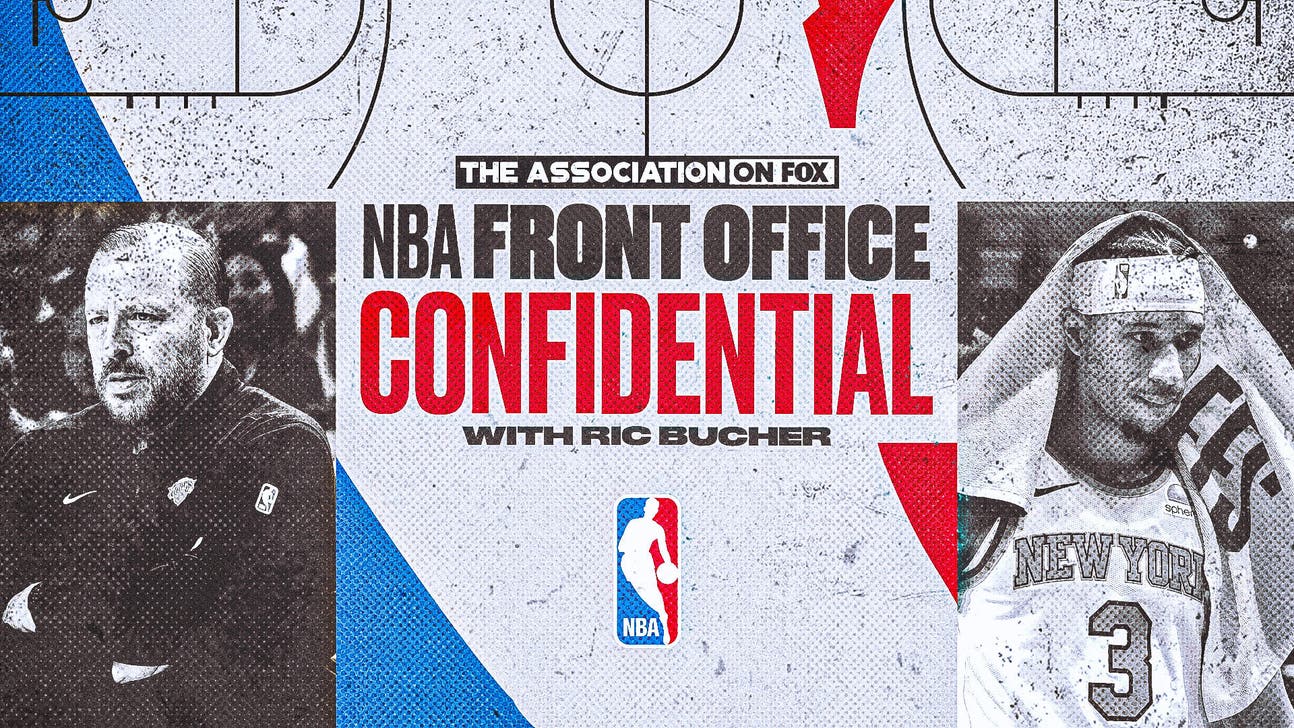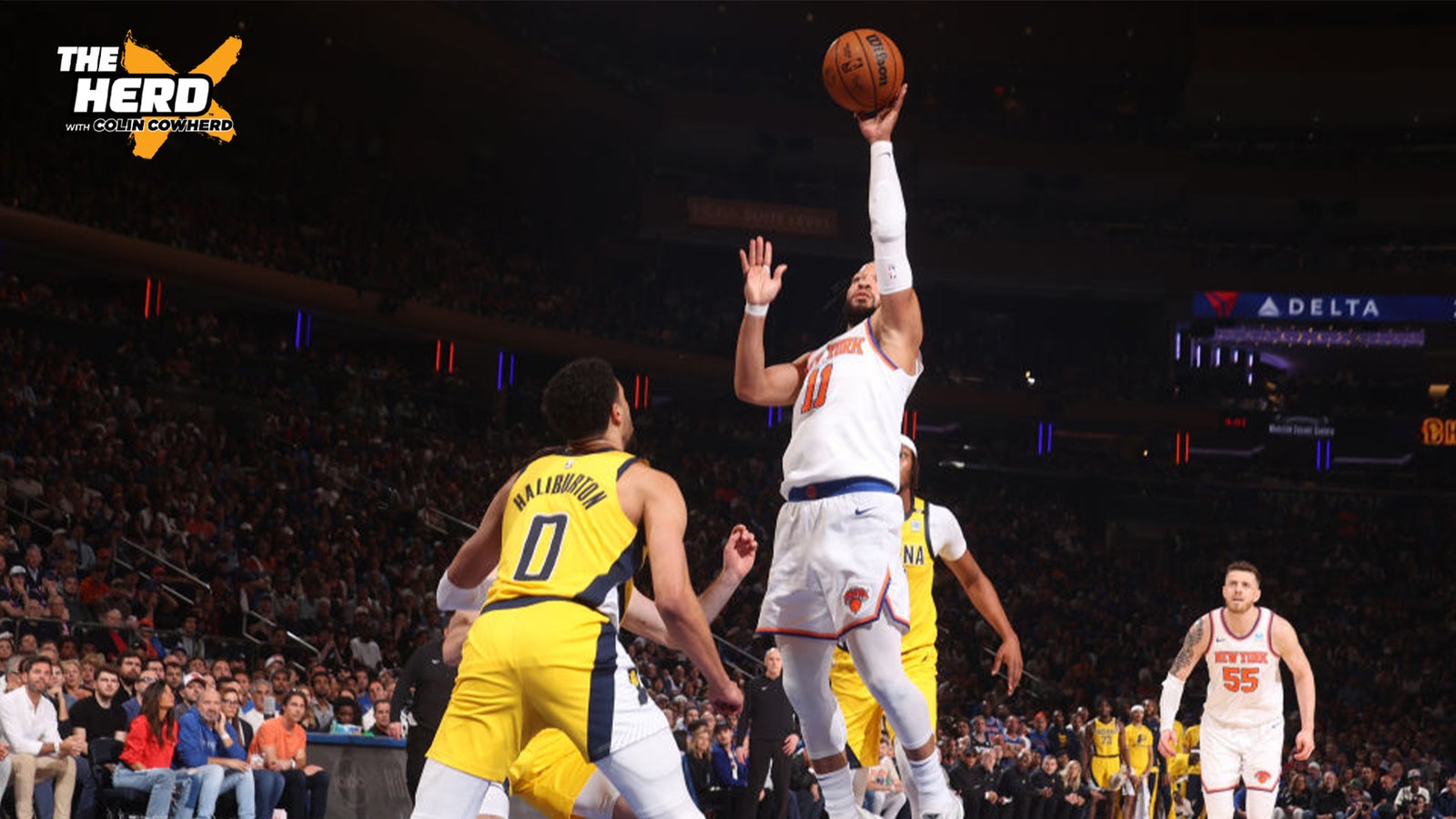
NBA Confidential: Is the Thibs Method successful or shortsighted?
New York Knicks head coach Tom Thibodeau is familiar with the term, load management.
He just doesn't believe in it. And he covets and cultivates players who don't believe in it, either.
The result is that Thibodeau-led teams — more often than not a collection of lesser-knowns — have two fairly consistent qualities: they overachieve and they physically break down.
With that scenario playing out once again as the sixth-seeded Indiana Pacers wore down and then knocked out this year's second-seeded Knicks — seven players were out or compromised by an injury by the series' end — FOX Sports surveyed a variety of scouts, GMs and executives about Thibodeau's approach. Specifically, they were asked if Thibs' formula — few days off, rigorous practices, a short rotation and heavy minutes for his core players — should be lauded or questioned?
The responses were as mixed as the results that Thibodeau teams produce. Some thought he was getting the most out of what he had. Others saw it as a shortsighted recipe that guaranteed postseason disappointment. Still others refused to tie the injuries to his approach while admitting that he could reduce the risk.
"The shorter rotations, along with bigger minutes, are certainly factors in their success," an Eastern Conference scout said. "But I think, more than that, he has a group that collectively fits his system and channels his basketball philosophy really well. So that synergy has helped to create a very good team where the whole is greater than the sum of the parts."
An Eastern Conference GM simply responded by sending a TV screenshot of the Knicks listed as out or injured for the decisive Game 7 against the Pacers: Julius Randle (shoulder); OG Anunoby (hamstring); Bojan Bogdanovic (foot); Mitchell Robinson (ankle); and Josh Hart (abdominal). Along with this unofficial NBA proverb: "He who is less injured usually has the greatest opportunity to win when it matters most."
An Eastern Conference executive, meanwhile, offered a big-picture snapshot: "Thibs' approach is the best path to short-term success, but it is not sustainable on a year-to-year basis. Eventually, injuries and agent complaints will mount up."
As in, player agents, who either become unhappy that their client's career is being shortened by the heavy minutes, or that their client is rotting away on the bench. "The heavy minutes work for this group," said a Western Conference scout, "but you won't see the effects until years down the road. The development, or lack thereof, with their end-of-roster guys, is another thing."
Was the Knicks' season a success after being eliminated by Pacers?
Thibodeau does not seem the least bit concerned about his reputation or the results. The Athletic conducted an anonymous survey of players and 44% named Thibodeau as the coach they'd least like to play for. Thibs not only made no attempt this postseason to reduce the wear-and-tear of his primary players, but he appeared to go out of his way to test their endurance. When the Knicks bowed out of the postseason, Hart, Jalen Brunson and Donte DiVincenzo stood first, second and sixth in playoff minutes played. The closest team with a similar workload were the Denver Nuggets, who also had three players in the top 10 — but Nikola Jokic was fourth, Jamal Murray was seventh, and Aaron Gordon was 10th. No other team had more than two.
Nor is it a surprise Hart finished first; Thibodeau never took him off the floor for four postseason games — including one that went into overtime — and rested him a mere 91 seconds in a fifth. And in a 121-89 blowout win for the Pacers in Game 4, he still had four starters (Hart, Brunson, DiVincenzo and Isaiah Hartenstein) on the floor down by 25 with less than three minutes to play.
Thibodeau had the same approach during the regular season with similar results limited to the postseason, entering the All-Star break with only seven healthy players.
Despite all that, one Western Conference GM said his team has studied the medical data and there's no incontrovertible proof that playing a high volume of minutes results in injury. Chicago Bulls forward DeMar DeRozan, for example, led the league in minutes per game (37.8) at 33 years old, appeared in 79 games and finished second to Steph Curry for clutch player of the year honors.
"Generally, there's no evidence playing more is bad for a team, short- or long-term, but Thibs is definitely at the outer edge," he said. "It definitely looks bad for him, and the more you play, the more chance you have of getting injured. But I still think that's too simple. I doubt any doctor would say (Hart's) abdominal injury was likely caused by too many minutes. Robinson hardly played and got injured. It's an easy take to say Thibs grinds on his guys, but, again, I don't think there's evidence. Plus, if he didn't play them this much, they lose to Philly in the first round and none of this is an issue."
Should the Knicks run it back next season?
An Eastern Conference scout agreed. "Could some of the injuries have been prevented by playing Alec Burks and Precious Achiuwa more off the bench?" he asked. "Possibly. But players who are well-rested suffer injuries, too. Fatigue could contribute, for sure, but it's very difficult to assign if it's that or just bad luck."
The Western Conference GM did have a caveat. While he wouldn't draw a direct line from Thibs' approach to the spate of injuries, he wouldn't want his coach to take the same philosophy for reasons beyond assuring health in the postseason.
[Want great stories delivered right to your inbox? Create or log in to your FOX Sports account, follow leagues, teams and players to receive a personalized newsletter daily.]
"I'm defending him, but I wouldn't do it," he said. "I do think he plays guys more than he should. I do think it limits bench development and increases the risk of injury. It's just that I don't feel I have good enough evidence to know I'm right. Rotations are really a coaching preference. It's much more who a coach wants to play. Then guys get used to it and the team settles in. But we have studied it and one approach doesn't seem better than the other, as best as we can tell."
Thibodeau addressed the state of his team after they were eliminated, and acknowledged that he squeezed all that he could out of them. "It was a battle all year," he said, "and there was nothing left to give at the end. I thought guys gave everything they had and that's all you can ask."
The question, for now: Are there times it shouldn't be asked for, so that the end might not come as soon, and they actually might have something left to give?
Ric Bucher is an NBA writer for FOX Sports. He previously wrote for Bleacher Report, ESPN The Magazine and The Washington Post and has written two books, "Rebound," on NBA forward Brian Grant's battle with young onset Parkinson's, and "Yao: A Life In Two Worlds." He also has a daily podcast, "On The Ball with Ric Bucher." Follow him on Twitter @RicBucher.










